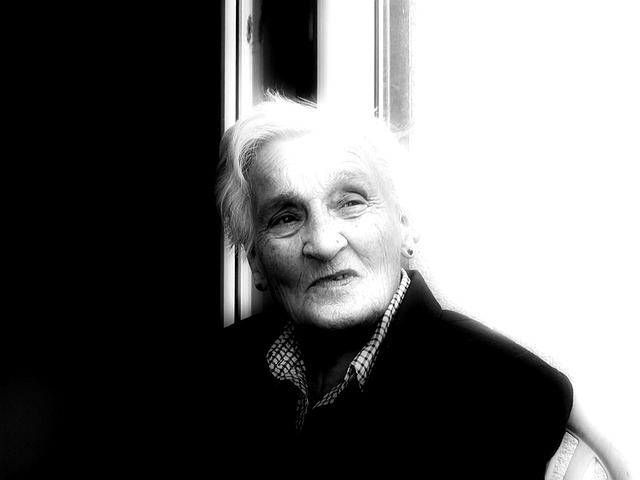Odessa’s Top-Rated Elderly Care: Transform Lives, Save Time & Money
Looking for reliable and affordable elderly care in Odem, Texas? Elderly Care Odem Texas offers a co…….
In the heartland of Texas, Odem has emerged as a beacon of hope and care for the elderly population, reflecting a growing global recognition of the importance of specialized senior support. “Elderly Care Odem Texas” (ECOT) is a comprehensive initiative designed to enhance the quality of life for seniors, cater to their unique needs, and provide a supportive environment that promotes independence and well-being. This article delves into the intricacies of ECOT, exploring its definition, global impact, economic implications, technological advancements, regulatory framework, challenges, successful implementations, and future prospects. By examining these aspects, we gain valuable insights into how Odem is reshaping elderly care, setting a precedent for communities worldwide.
Definition: Elderly Care Odem Texas (ECOT) refers to a coordinated system of services and support tailored to meet the physical, mental, and emotional needs of seniors aged 65 years and above. It encompasses various levels of care, from community-based programs to specialized residential facilities, all aimed at fostering a high quality of life for the elderly.
Core Components:
Community Outreach Programs: These initiatives focus on bringing care to the seniors’ homes, ensuring accessibility and comfort. Services include home-cooked meals, social activities, transportation to medical appointments, and assistance with daily tasks.
Assisted Living Facilities: ECOT supports a network of assisted living communities that provide round-the-clock care, medication management, therapy sessions, and organized leisure activities for residents. These facilities cater to varying levels of independence and need.
Skilled Nursing Care: For individuals requiring more intensive medical attention, skilled nursing homes offer specialized care, including post-hospital recovery, long-term care, and advanced medical services under the supervision of healthcare professionals.
Memory Care: Recognizing the unique challenges of dementia and Alzheimer’s disease, ECOT includes dedicated memory care units designed to provide a secure and stimulating environment for residents with cognitive impairments.
Case Management: A crucial aspect is the assignment of case managers who coordinate services, ensure continuity of care, and act as advocates for seniors, facilitating communication between healthcare providers, families, and the individual.
Historical Context: The concept of ECOT gained momentum in response to the aging demographic trend worldwide. As life expectancy increased, societies began recognizing the need for specialized care for older adults, leading to the development of comprehensive elderly care models. Odem’s approach is a testament to Texas’ proactive stance on addressing the unique challenges faced by its growing senior population.
The influence of ECOT extends far beyond Odem’s borders, as it reflects a broader global movement towards recognizing elderly care as a critical component of overall public health and well-being.
International Influence:
North America: The United States and Canada have been pioneers in developing comprehensive elderly care systems, with eco-friendly and community-centric models gaining popularity. Odem’s approach aligns with these trends, offering a unique twist tailored to the Texas landscape.
Europe: Many European countries have robust social safety nets for the elderly, focusing on home care and community integration. The UK, for instance, has a well-established National Health Service (NHS) that provides universal access to healthcare, including elderly care services. ECOT shares similarities in its holistic approach to senior support.
Asia: With some of the world’s oldest populations, countries like Japan and Singapore have developed innovative solutions, such as smart homes equipped with technology to monitor and assist seniors. These technological advancements are increasingly integrated into ECOT models worldwide.
Key Trends Shaping Elderly Care:
Personalized Care: There is a growing emphasis on tailoring care plans to individual needs, preferences, and cultural backgrounds. Odem’s diverse community offers a rich tapestry of services to cater to various senior lifestyles.
Community Integration: Promoting independence and social connections, many elderly care initiatives focus on keeping seniors engaged within their communities. ECOT’s outreach programs actively encourage this through social activities and transportation services.
Technology Integration: The adoption of technology in elderly care is on the rise, from telemedicine to home automation systems. Odem embraces these advancements, ensuring that its services remain modern and accessible.
The economic landscape surrounding ECOT is complex, involving various stakeholders and market dynamics.
Market Dynamics:
Demographic Shifts: The aging population in Texas and globally presents a significant demand for elderly care services, driving market growth. By 2050, it is projected that people aged 65 and above will make up over 20% of the world’s population (UN, 2022), further emphasizing the need for ECOT-like initiatives.
Government Funding: Public funding plays a crucial role in supporting elderly care systems. In Texas, state and local governments contribute to ECOT through subsidies, grants, and partnerships with non-profit organizations. These funds are allocated based on population needs and service availability.
Stakeholders and Implications:
Healthcare Providers: Private healthcare facilities, assisted living communities, and home health agencies are key providers of ECOT services. They invest in infrastructure, staff training, and technology to deliver quality care, often partnering with local governments for funding and regulation.
Families: While ECOT aims to reduce the financial burden on families, many seniors’ care still requires significant out-of-pocket expenses, including copays, co-insurance, and private pay for services not covered by insurance or government programs.
Economic Growth: The elderly care sector contributes substantially to local economies through direct employment, business development, and increased demand for related services. Odem’s ECOT model is expected to stimulate economic growth while enhancing the quality of life for seniors.
ECOT embraces technological innovations to improve service delivery, enhance senior independence, and facilitate better communication within care networks.
Integrated Care Systems: Odem has implemented digital platforms that enable seamless sharing of health records among providers, ensuring continuity of care. These systems streamline appointment scheduling, medication management, and remote monitoring of vital signs.
Telemedicine: Remote healthcare consultations are increasingly common, allowing seniors to access medical advice and specialized treatments from the comfort of their homes. This is particularly beneficial for rural areas within Odem, where access to healthcare facilities may be limited.
Home Automation: Smart home devices can assist with daily tasks, monitor safety, and provide entertainment. For example, automated lighting systems, voice-controlled assistants, and fall detection sensors contribute to a senior’s independence and peace of mind.
Mobile Applications: Dedicated apps offer seniors and their families easy access to care management tools, including appointment reminders, medication tracking, and communication with caregivers. These applications foster engagement and empower individuals to take an active role in their healthcare.
A robust regulatory environment is vital for maintaining high standards in elderly care. Odem’s ECOT model operates within a structured framework that includes:
State Licensing: All assisted living facilities, skilled nursing homes, and memory care units in Texas must obtain licenses from the Department of Health and Human Services (DHHs), ensuring compliance with safety and quality standards.
Case Management Regulations: Case managers are required to have specific training and certifications. They operate under guidelines that protect resident rights, promote informed consent, and ensure ethical practices.
Quality Assurance Programs: The DHHs conducts regular inspections and assessments to monitor service delivery, employee qualifications, and facility maintenance. This ensures that ECOT providers maintain high standards of care.
Medicaid and Medicare Regulations: These government health programs have specific rules regarding eligible services, coverage, and reimbursement rates for elderly care facilities. ECOT providers must adhere to these regulations to participate in the programs.
While ECOT offers a promising approach to elderly care, it is not without challenges. Addressing these obstacles presents opportunities for innovation and system improvement.
Challenges:
Staffing Shortages: There is a growing demand for trained healthcare professionals, particularly specialized caregivers for the elderly. Odem faces the challenge of attracting and retaining qualified staff to meet the needs of its expanding ECOT network.
Funding Inequities: Rural areas within Odem may struggle with accessing adequate funding for elderly care services due to lower population densities and limited economic resources. Bridging this gap is essential to ensure equal access to quality care.
Technology Adoption: While technology offers numerous benefits, some seniors and their families may face challenges in adopting new digital tools. Providing adequate training and support is crucial to ensure successful integration of technological advancements into ECOT models.
Opportunities for Innovation:
Telehealth Expansion: Expanding telemedicine services can improve access to specialized care, especially in rural areas. Odem’s commitment to technology adoption can further enhance this aspect of ECOT.
Personalized Care Planning: Developing digital platforms that facilitate comprehensive care planning tailored to individual senior preferences and goals can improve satisfaction and engagement.
Community Engagement: Encouraging more community-based initiatives, such as intergenerational programs and volunteer opportunities, can promote social connections and a sense of belonging among seniors.
ECOT’s effectiveness is evident in numerous successful implementations across Odem, each contributing to the overall growth and refinement of this care model.
Case Study 1: Hillview Assisted Living Community
Located in the heart of Odem, Hillview offers a vibrant example of an ECOT-supported facility. With over 100 residents, it provides a range of services, including personalized meal plans, daily social activities, and transportation to medical appointments. Hillview’s success lies in its staff-to-resident ratio, ensuring individual attention and fostering a sense of community.
Case Study 2: Rural Home Health Care Program
In response to rural areas’ challenges, Odem implemented a home health care program that provides remote monitoring and personalized care plans for seniors living independently. This initiative has improved access to healthcare services, reduced hospital readmissions, and enhanced the overall quality of life for eligible individuals.
Best Practices:
Collaboration Across Sectors: Successful ECOT models involve partnerships between healthcare providers, social service agencies, and community organizations. These collaborations ensure a holistic approach to senior care, addressing physical, emotional, and social needs.
Person-Centered Care: Tailoring services to individual preferences, abilities, and goals ensures higher levels of satisfaction and engagement among seniors. This approach promotes independence and a sense of purpose.
Continuous Quality Improvement: Regular evaluation and feedback from residents, families, and caregivers are essential for refining ECOT practices. Incorporating best practices and innovative solutions contributes to the overall improvement of elderly care systems.
ECOT represents a comprehensive and forward-thinking approach to elderly care, addressing the physical, emotional, and social needs of seniors within Odem. By embracing technological advancements, maintaining robust regulatory standards, and fostering community partnerships, Odem is setting an example for effective eldercare models. As the demand for quality elderly care continues to grow, the successful implementation of ECOT in Odem serves as a beacon, guiding other communities towards enhancing the lives of their aging populations.

Looking for reliable and affordable elderly care in Odem, Texas? Elderly Care Odem Texas offers a co…….

Looking for reliable and affordable elderly care in Odem, Texas? Our tailored programs offer a 25% d…….

Experience unparalleled elderly care in Odem, Texas, with our personalized meal preparation service&…….

Looking for reliable and affordable elderly care in Odem, Texas? New Local Care is here to transform…….

Looking for a hassle-free way to ensure your elderly loved ones in Odem, Texas, receive nutritious m…….

Need reliable elderly care in Odem, Texas? Save time, simplify life, and ensure your loved ones'…….

In Odem, Texas, caring for an aging loved one can be a demanding task, but with our elderly care ser…….